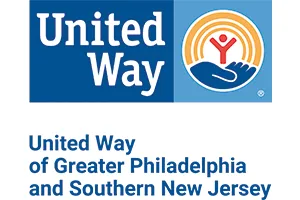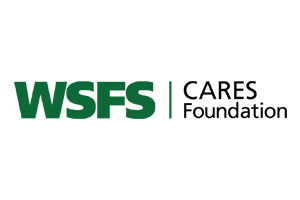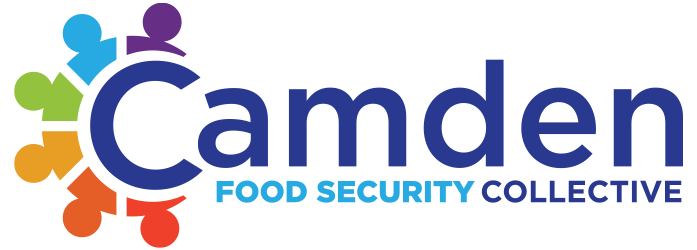
COORDINATED
Our Purpose
Building off a decade of collective work led by the Campbell Soup Company through the Campbell’s Healthy Communities program, the Camden Coalition launched a new initiative to go deeper on issues around food security in the city of Camden.
Of the 3,675 Camden City residents who completed a food insecurity screening connected with their healthcare visit in 2020, 37% indicated that in the past 12 months they sometimes or often worried they will run out of food without the funds to purchase more, and/or the food they purchased didn’t last and they didn’t have funds to purchase more. Therefore, in February 2019, Camden Coalition of Healthcare Providers (the Camden Coalition) began conversations with executives from seven organizations involved in food access to ask, “why?”
This prompted dialogue aimed at further examining and addressing issues around food security and equity in the city of Camden. The conclusion was that food insecurity persists because we have yet to solve affordability and the impacts of structural racism.
The Problem
Affordability and structural racism are challenges in Camden for several reasons.
Persistent poverty plagues more than one-third of residents.
Low wages and/or benefits are insufficient to meet the high cost of living. The average Camden resident has to spend nearly half of their $28,623 median household income on housing.
Camden is a hyper-local city with highways dividing its nine square miles and no supermarket.
Transportation is a significant barrier for how its primarily Black and Latino residents can access healthy food and safety-net resources.
Residents rely heavily on local small businesses to purchase food, but these retailers don’t have the same purchasing power as larger grocery stores to offer affordable prices on fresh produce and other healthy options.
Despite a robust network of supplemental food distributors, this system can be complex and time-consuming for residents to navigate, which leads to burdensome access to healthy foods.
The Opportunity
Camden has an abundance of dedicated community-based organizations who have innovated to close some of these gaps through nutrition education, food assistance programs, and wrap-around social services.
Within the Campbell’s Healthy Communities (CHC) collective, members like the Food Trust have provided technical assistance to more than 40 corner stores to become “Healthy Corner Stores.” Others have partnered with Parkside Business & Community in Partnership (PBCIP) to leverage new funding in support of the development of more local produce growers to supply a food prescription program at Virtua Hospital.
In the Camden food ecosystem, organizations like Cathedral Kitchen are training residents in their culinary program while serving the needs of people experiencing homelessness. These are just a few of the community assets to build upon.
The Solution
This Camden Food Security Collective is organizing these and other stakeholders to build on the work of the last 10 years and harness our collective power for system and policy changes that accompany the direct service we all excel at delivering.
Launched by the Camden Coalition and the Food Bank of South Jersey, the Camden Food Security Collective is a coordinated community that fosters food security through structural equity, and seeks to engage a broad set of stakeholders to address the upstream causes of food security in Camden County and create equitable, lasting solutions for food security by 2031.
The work of the Camden Food Security Collective seeks to go beyond addressing one of the most fundamental human needs, which is having food, to tackling the ramifications of poverty-induced food insecurity and ushering in a new narrative of a thriving, stable community with access to ample healthy, nutritious foods.
The Collective Impact Model
Organized under the Collective Impact Framework, this framework supports collaborative cross-sector partnerships that address complex social and environmental challenges.
It is built around: (1) A common agenda; (2) Shared measurement; (3) Mutually reinforcing activities; (4) Continuous communication; and (5) A strong backbone. It promotes inclusivity and an equitable balance of power that harness optimal solutions emerging from the community itself. The adoption of the Collective Impact framework to solve Camden City’s food insecurity crisis is a demonstration of the commitment to create true, lasting, and meaningful change.
Through this model, we can achieve an audacious goal in the next 10 years, which is greater than the sum of our parts.
Common
Agenda
Shared
Measurement
Mutually Reinforcing
Activities
Continuous
Communication
Backbone
Organization
What is our Common Agenda?
The Camden Food Security Collective is a coordinated community that fosters food security through structural equity. We seek to engage with a broad set of stakeholders, led by community residents, health and food systems, and public agencies, to address the upstream causes of food insecurity in Camden County and create equitable, lasting solutions by 2031.
INCREASE FOOD SECURITY AND EQUITY IN CAMDEN
TRANSFORM FOOD ACCESS
SUPPLEMENTAL FOOD
CFSC supports the community. Coordinate a network of choice-based, culturally relevant supplemental food distributions with consistent schedules to increase access and equity.
RETAIL
CFF supports businesses. Seek to provide capital to new and existing business owners who participate in or help to advance a healthy, equitable local food economy.
CO-LOCATE COMMUNITY
RESOURCES
COMMUNITY HUBS
Co-locate multiple services at neighborhood sites where residents facilitate engagement.
INCREASE RESIDENTS’ FINANCIAL SECURITY
EMPLOYMENT
Design a workforce pipeline with accompanying training and placement for stable jobs with family-sustaining wages.
BENEFITS
Increase connections to, and value of, benefits like SNAP/WIC.
Other Issues
HOUSING
Advocate for more affordable housing resources and integrate navigation at Hubs.
Moving Forward Towards a Food Secure Future
The Collective’s common agenda identified a three-pillar strategic approach to addressing the upstream drivers of food insecurity. The first pillar is Transforming Food Access through strengthening the existing supplemental food network and offering support to businesses who help provide equitable access to healthy food. The second pillar of the common agenda is Co-locating Community Resources, which centers on the establishment of resourceful neighborhood-centric community hubs that reduce transportation barriers and thereby increase access to an array of benefits and health and social services. The third pillar is Increase Residents’ Financial Security by focusing on areas of workforce development and employment, improved access to and sufficiency of public benefits (e.g. SNAP and WIC), and addressing access to affordable housing through resource navigation and advocacy efforts.
Thanks to the Outstanding Support of Our Funders!






